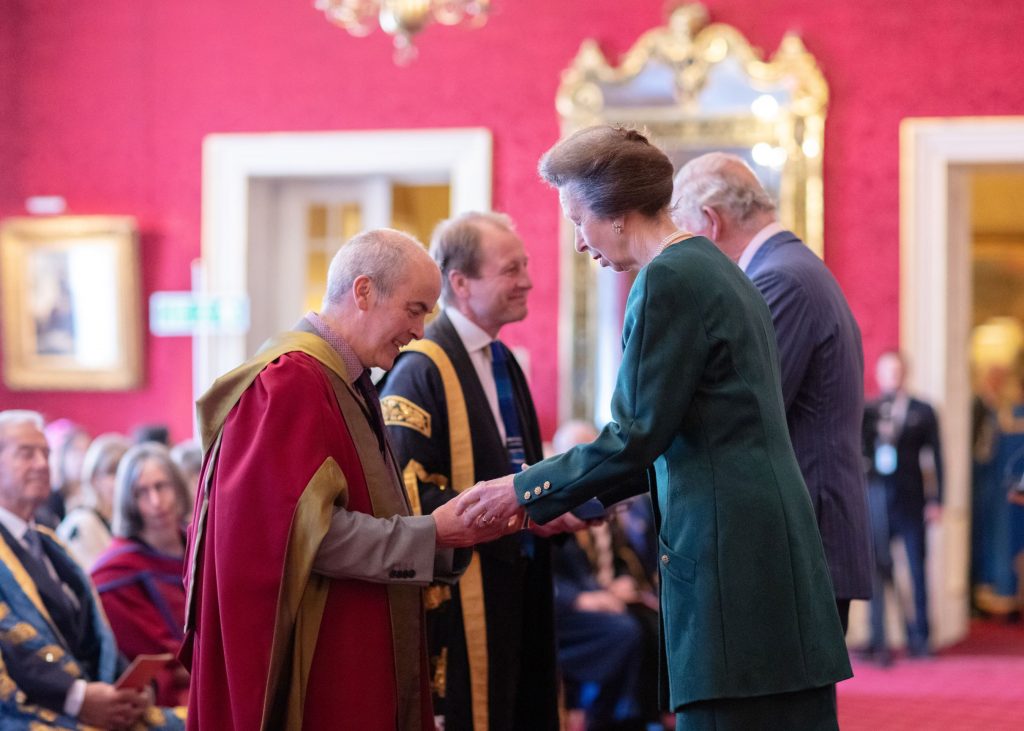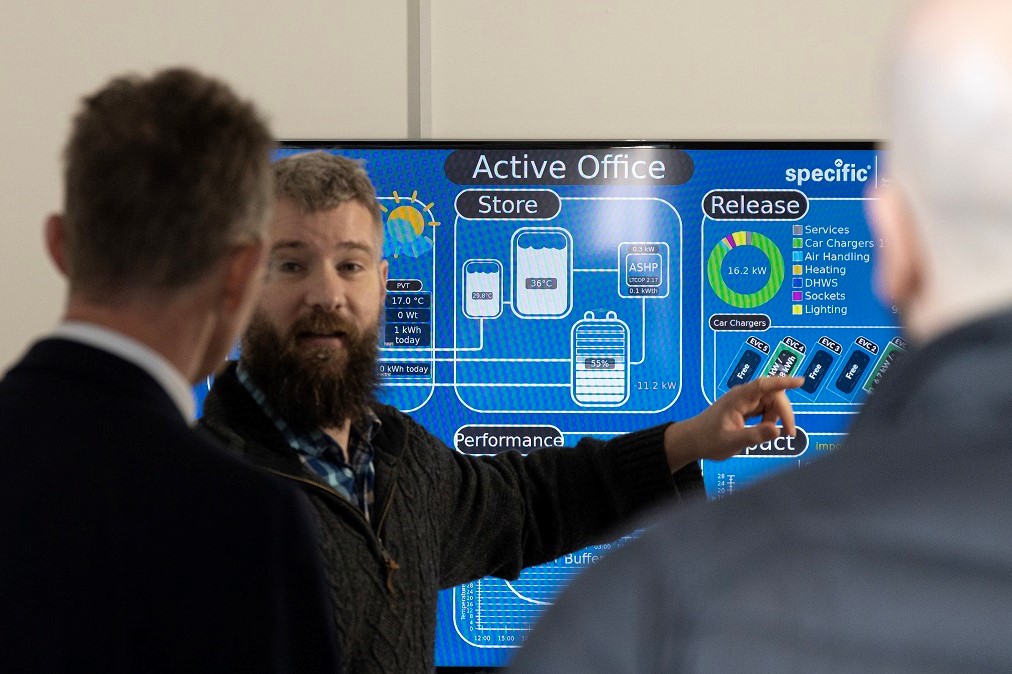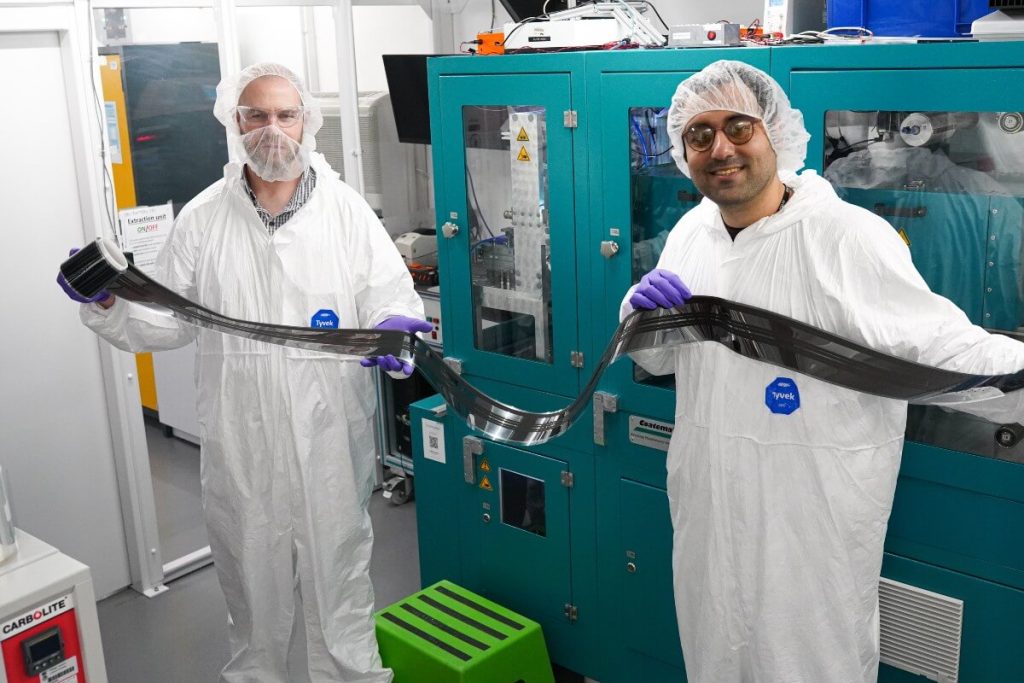SPECIFIC has secured funding from the UKRI Engineering and Physical Sciences Research Council (EPSRC), which will be co-funded by the Welsh Government.
The two-year agreement provides £500,000 from EPSRC, which has been matched with £500,000 from the Welsh Government. This funding will support our core team for one year.
As existing EU-funded programmes end this year, the future funding of many projects in Wales is in doubt.
The collaborative approach between EPSRC and Welsh Government to award this fund will allow some of our critical research and business support work to continue while we seek longer-term funding.
In its recently-published innovation strategy the Welsh Government recognised that, in the post EU-funding world, it no longer holds many of the financial levers it used to have to make significant investments in research and development; Wales will need to build on areas of strength and real potential and work collaboratively with private, public and third sector to secure funding.
Net Zero and decarbonisation are priority areas of the strategy. This funding will keep expertise in Wales and continue to support Wales and the UK in our journey towards Net Zero, developing new technologies and pushing forward on adoption and diffusion.
Building on a decade of success
SPECIFIC was one of seven Innovation and Knowledge Centres set up in 2011 to foster new industries by closing the gap between scientific research and its commercial exploitation.
Since 2016, SPECIFIC has received £18m funding from the European Regional Development Fund through the Welsh Government, in concert with funds from UKRI.
This funding has supported work with 257 businesses on 178 collaborative projects, developing 45 new to firm or new to market products. This has led to over £37million private sector investment into these companies and the creation of 302 jobs.
They include businesses like:
- Cotech Sensitising Ltd who were supported to reduce their carbon footprint and energy costs.
- measurable.energy, who we supported with an extensive data acquisition and validation study, which resulted in a recent commercial launch of their energy-saving platform and substantial investment.
- Naked Energy’s VirtuPVT (photovoltaic–thermal) tubes, which were installed commercially for the first time on the Active Office. Our partnership helped the company gain real performance data, showcase their product to the market and secure £5 million investment funding.
Our own research has also seen significant advances during this period. SPECIFIC has collaborated with 41 research organisations globally, particularly in next-generation photovoltaics. Our focus on the scale-up of technology and demonstration on buildings has found an important place in the research community.
Examples of our research advances include:
- The world’s first completely roll-to-roll printed perovskite solar cell, which unlocks the potential for large-scale manufacture and commercialisation of this emerging technology.
- One year of outdoor testing on the first UK-made carbon perovskite solar panels at our SHED facility.
- Replacing a toxic solvent used in the manufacture of photovoltaics with a safer, greener solvent.
Our success was last year recognised with the award of the Queen’s Anniversary Prize for Science and Technology. As a result, Swansea was the only Welsh University included in the “Accelerating towards Net Zero” report – the first of its kind, which highlights target areas for emissions reporting and reduction.
There is still much to do on our journey towards Net Zero
This funding will enable our work to continue and to develop projects that are underway including:
- The continued research to scale-up and manufacture next generation PV.
- Work with social housing landlords to develop low-carbon, low-cost energy for residential properties in South Wales.
- Supporting Swansea University’s 2035 Path to Zero Transition Plan.
Crucially, SPECIFIC also acts as a hub for academics, researchers, businesses and public sector organisations to work together, learn from each other and support each other to be more sustainable.
The project links allied programmes in energy, materials and steel development, benefitting the Swansea Bay region, Wales, the UK and well beyond.



